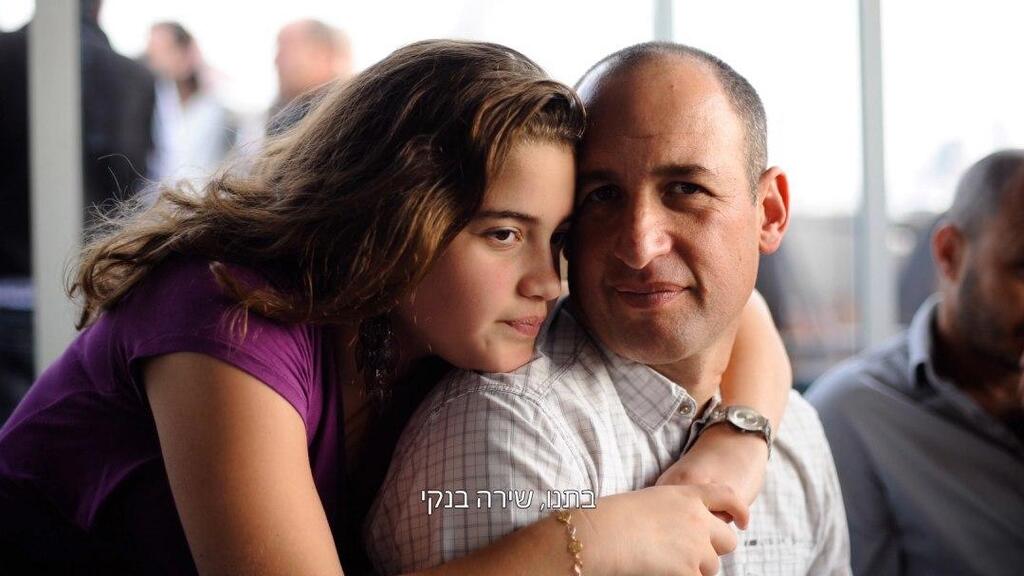Let's talk about hate, that dominant feeling that often overshadows more complex emotions.
Are we allowed to hate? Clearly so, but only sparingly and when there is no other alternative. For it is almost always appropriate to reserve that hatred as an emotion directed at someone who has caused us terrible injustice and not at entire sectors of the population.
2 View gallery


Uri Banki with his daughter Shira, who was murdered at Jerusalem Pride Parade in 2015
(Photo: Reuveni Pridan IPG)
Should we hate a killer? Of course. But should we hate the community in which he or she was raised? Almost never. Should we hate our political opponents? Rarely, and even then without alienating and hating anyone who supports them.
We are allowed to quarrel, argue, disagree with one another, vote for different parties, celebrate the formation of a government or be sad over it.
We can act lawfully to change the government. We can demonstrate, sign petitions, post videos on social media, get angry and express criticism.
But we must never mobilize hatred and incitement to advance our goals.
While it is important to win an argument, to push for our opinions and lifestyle to be adopted by our leaders, it is far more important to maintain a civilized framework.
A victory that leads to the destruction of this framework is a short-lived, hollow one. A hate-filled victory that leaves the other side defeated and offended leads to nothing more but another round of clashes saturated with more intense hatred.
While we must demand that our leaders, politicians, media and other public figures work to moderate the public and political discourse in Israel, this does not absolve each of us of individual responsibility.
We are not children in kindergarten watching the adults and imitating them without independent thought or criticism.
And unfortunately, a few of us contribute to this negative discourse.
Whenever we like a thoughtless post on social media, whenever we cheer on hateful expressions virtually or in real life, whenever we are tempted to hate right-wingers, left-wingers, the religious, the secular, LGBTQ+ people, or in general anyone who does not look and think like us - we add fuel to the bonfire of hatred.
And it almost goes without saying, on the eve of Tisha B'Av, that such a bonfire of hatred will consume us all.
For six years, since the murder of our daughter Shira at Jerusalem Pride Parade, we have been working to counter extremism and hatred.
We know that the vast majority of the people who live in Israel eagerly reject these tendencies. But we also know how easy it is to forget our best intentions in times of anger and distress.
The responsibility for reducing hateful discourse in a society as diverse as Israel's does not rest on the shoulders of the prime minister, the education minister or the leader of the opposition.
Nor should we wait for divine assistance or for a magical creature to somehow sprinkle tolerance over our country.
Each of us must act to ensure that Israeli society can thrive as a diverse and inclusive entity.
Uri Banki is the father of Shira Banki, who was murdered at the age of 16 at Jerusalem Pride Parade in 2015. He is the founder of "Shira Banki’s Way," an organization devoted to promoting tolerance


